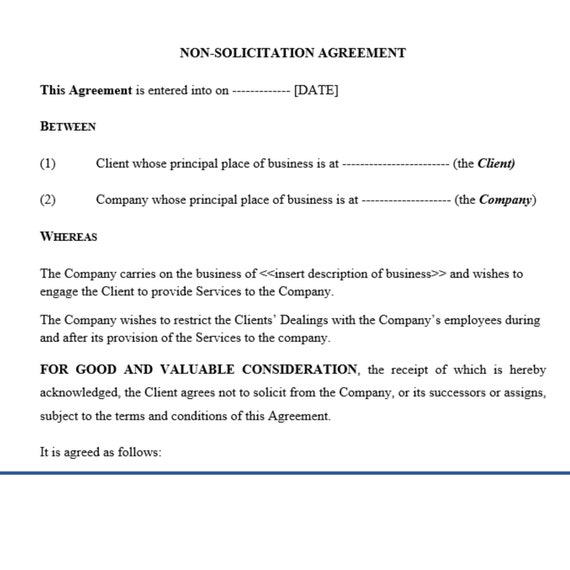
There are many things you need to take into consideration when choosing an investment adviser. You will learn about fiduciary responsibility, conflicts, hourly rates, retainer fees, and Fiduciary liability. You should ensure that your investment advisor complies with the regulations. Your advisor should be registered with the Securities and Exchange Commission (SEC) or the state securities agency.
Fiduciary responsibilities
A fiduciary duty requires investment advisors to act in the client's best interests and disclose material facts to avoid conflicts of interest. Fiduciary breach can lead to civil and financial liability. Excessive trading or inappropriate margin trading are examples of breaches of fiduciary duty. False representations about securities are also examples.
Fiduciary duty is the requirement that investment advisors act in the best interests of the client, keeping the client's interests at heart. This means that they must ensure that the advice they give is appropriate for the client's needs. The advisor must have sufficient information about the client's financial situation to do this. Fiduciaries typically decide what is in the client’s best interest and then discuss it.
Conflicts of Interest
Investment advisors must disclose potential conflicts to clients. This disclosure must include the nature of the conflict, how the conflict is managed, and how the adviser will mitigate the conflict. It must be disclosed at time of initial recommendation as well as every time an adviser recommends an investor hold an investment. Whether or not an adviser has a conflict of interest depends on the specific circumstances of the relationship between the adviser and the client.

A conflict of interest is when clients and investment advisors have different financial interests. For example, an advisor may be motivated by a commission to sell a particular security. The advisor gets a commission when an investor purchases the security. Advisors will try to locate the highest-paying investments.
Hourly rates
Flat fees, hourly rates, and other fees can be charged by investment advisors for time spent with clients. These fees are usually disclosed up front. Before paying for any services, clients should see an invoice. Hourly rates are also affected by experience and specialty. Experienced advisors will charge more than less-experienced advisors.
For firms providing investment advice, the hourly fee model is very popular. If the service is performed only once, the hourly rate can be reasonable. A flat rate or percentage fee might be a better choice if you require ongoing management.
Retainer fees
While the cost of commission-based financial advisors may be attractive, they are not a wise choice for every client. These advisors work as salespeople and make commissions on the sales of financial products for their clients. These products can include mutual funds, stocks or insurance. Retainer-based Advisors are less expensive and more transparent than commission-based ones.
Retainer-based financial advice is a great way to avoid conflicts of interests. The amount paid to the advisor is equal to one percent to two percent of the portfolio's value. The advisor would make $5,000 to $10,000 per annum if the client had a $500,000 portfolio. This type of arrangement can be costly and may create conflict of interests. Additionally, retainer-based financial advisers can earn ancillary income by implementing a client’s investment plan.

Choosing an investment advisor
Choosing an investment advisor is one of the most important financial decisions you can make. It's important to choose someone who is registered and accredited, has a proven track record of success, and offers you a variety of investment products and advice. A member of the Investment Industry Regulatory Organization of Canada is a must. This organization regulates all Canadian investment dealers and monitors compliance.
There are many types and styles of advisors. Ultimately, choosing the right one for your organization will depend on your specific goals. Even though past successes are not guaranteed to bring you future success, building trust with your advisor will help you build a trustworthy, honest relationship. Look for someone who communicates with their clients regularly and focuses on long-term goals rather than just making short-term decisions based on emotions.
FAQ
What qualifications do you need to become a consultant in order to get your degree?
Learning a lot about a subject and then applying it to your life is the best way to be an expert.
Start studying today if you want the skills to be a great manager!
Employers may be reluctant to hire people with a degree, but not the relevant experience. But, if your qualifications are comparable to those who have been hired, you might still be eligible to apply.
Employers are always looking for people with real-world knowledge.
What are the different types of jobs available for consultants?
You will need to be able to understand business strategy and operations if you want to work as a consultant. You must also understand how businesses operate and how they fit into society.
You must have excellent communication skills as well as the ability to think critically in order to be a consultant.
Consultants need to be flexible as they might be assigned different tasks at different times. They must be able and willing to adapt quickly to changes in direction.
They should be able to travel extensively for clients. This type of work can take you all around the globe.
They need to be able and able to manage pressure and stress. Consultants might sometimes have to meet tight deadlines.
Consultants are often expected to work long hours. You may not get overtime pay.
Can you run a business consulting from your home?
Absolutely! Actually, this is what many consultants already do.
Working remotely is a common way for freelancers to work. They use tools like Skype, Trello (Slack), Trello, Basecamp and Dropbox. They may even create their own office space in order to take advantage of company perks.
Some freelancers prefer to work in cafes or libraries instead of in a traditional office environment.
Others prefer to work from home as they feel more at home with their families.
Of course, working from home has its pros and cons. It's worth looking into if your job is fulfilling.
What is the real value of consulting?
Consulting isn't just a career option for those who want to earn quick money. It's also a great place to gain valuable skills and build a foundation you can use in your future work.
There are many options for consulting. These include project management, business strategy, strategy, leadership, and training. It is possible to work on projects that range from small start ups to large, international corporations.
Consulting gives you the chance to grow and develop your skills. This could include learning how to manage teams, write proposals, manage budgets and analyze data.
What should your consulting fees be?
It depends on what service you provide. If you are offering services for free, it is not worth charging anything. However, if you are selling products or services, then you need to set prices based on value.
If you are offering low-quality services, you don't have much to sell. Why would anyone pay anything for you?
If you are providing high-quality services, then you could ask for a higher price because people recognize the value you provide. You may also want to offer discounts to clients who buy multiple packages from you.
What happens when the consultant finishes his job?
After the consultant completes their work, he/she will submit a final summary of the results. This report details the project timeline, deliverables, as well any other pertinent information.
Then, you'll review the report and decide whether the consultant met your expectations. If the report does not meet your expectations, you have two options: to request changes or to terminate the contract.
Do I need to seek legal advice?
Yes! Yes! Many consultants create contracts without consulting clients. This can lead into problems down-the-road. For example, what happens if the client terminates the agreement before the consultant's completion date? What happens if your consultant doesn't follow the contract deadlines?
Avoid any legal issues by speaking with a lawyer.
Statistics
- "From there, I told them my rates were going up 25%, this is the new hourly rate, and every single one of them said 'done, fine.' (nerdwallet.com)
- According to IBISWorld, revenues in the consulting industry will exceed $261 billion in 2020. (nerdwallet.com)
- Over 50% of consultants get their first consulting client through a referral from their network. (consultingsuccess.com)
- WHY choose me: Why your ideal client should choose you (ex: 10 years of experience and 6-week program has helped over 20 clients boost their sales by an average of 33% in 6 months). (consultingsuccess.com)
- So, if you help your clients increase their sales by 33%, then use a word like “revolution” instead of “increase.” (consultingsuccess.com)
External Links
How To
What is a typical day for a consultant?
A typical day will vary depending on the type of work you are undertaking. You will be spending time researching, planning new ideas, meeting with clients, and creating reports.
Clients will often meet with you to discuss their problems. These meetings can be conducted over the phone, by email, face-to-face, or online.
The proposal is a document that outlines your ideas and plans to clients. These proposals should be discussed with a mentor or colleague before being presented to clients.
After all the preparation, you'll need to start creating content. This could include writing articles, designing websites or editing photos.
You may need to conduct research depending on the scope of your project to find relevant statistics and figures. You might need to determine how many customers you have, and whether they buy more than one product.
Once you have gathered enough information, it's time to present your findings to clients. Your findings may be delivered orally, or written.
After the initial consultation, it is important to follow up with clients. For example, you might call them periodically to see how things are going or send emails asking them to confirm that they received your proposal.
Although this process can take time, it is important to stay focused and build good relationships with your clients.